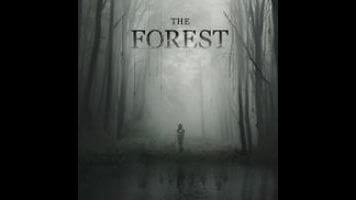Natalie Dormer doesn’t cut it as a scream queen in The Forest

Call them scream queens, final girls, or just B-movie mainstays: However horror-movie heroines are classified, those roles are often tougher than they look. Take nerd-friendly actress Natalie Dormer, who has enlivened genre fare like Game Of Thrones, The Hunger Games, Elementary, and Captain America: The First Avenger. In The Forest, she plays Sara, a woman who goes looking for her wayward twin sister Jess (also Dormer), who has been reported missing in the vicinity of Aokigahara Forest at the base of Mount Fuji in Japan—informally referred to, in the film and apparently in real life, as the Suicide Forest. Everyone tells her that Jess is likely dead, but Sara insists that her twin-sense allows her to intuit that her sister remains alive.
Dormer’s piercing, slightly feline eyes give her the right look for a horror movie, especially one set in the vast and menacing outdoors and featuring uncanny twins. But as much presence as she’s shown in smaller parts, Dormer is adrift in The Forest, failing to imbue Sara with a sense of either plucky resilience or creepy danger (asking the character to embody both would be a major request for this movie). Then again, the film does her no favors. As written, Sara is vaguely unpleasant, and not in an interesting way. When she first ventures to Japan—in an efficient if not especially elegant bit of storytelling, the movie has her setting off almost immediately, circling back for quick hits of exposition as the story progresses—the movie briefly hints at her displacement, like a more dread-infused Lost In Translation. But scenes of Sara recoiling at local cuisine and never attempting to speak even the smallest bit of Japanese don’t make the character endearing, nor do they make a clear or thematically relevant point about her shallowness. They seemingly serve only to make Dormer look bad.
Unfortunately, her Sara is pretty much the whole show. She does meet a journalist (Taylor Kinney) who wants to find out more about the search for her sister, and they enlist a guide (Yukiyoshi Ozawa) to bring them into the forest—though these scenes were not shot in the real Aokigahara. Indeed, the location as depicted here is pretty much just a generic spooky wooded area; the movie even supplies a cabin at one point. Director Jason Zada occasionally zeroes in on a simple, clear, and effective image: a cell phone flashing in the dark; shadows lurking just outside the wall of a tent; a flickering hallway light that continues to buzz even after the obligatory jump-scare; and, most inventively, flashback material conveyed in View-Master slides. Just as often, though, The Forest relies on generic bursts of ambiguous visions to goose its mild, intermittent scares.
The movie seems to be conceived as a slow burn, but it’s more like a faucet dripping lukewarm water. With a more compellingly written lead role and/or a more commanding lead performance—in other words, a scream queen worth rooting for—this could have been a creepy character study. It’s disappointing, then, to realize The Forest expends so much energy finding ways for Dormer’s character to conform to horror-lead expectations that she act gullible, oblivious, and even kind of stupid in the face of possible danger. This is a movie that confronts demons, then promptly slumps over.